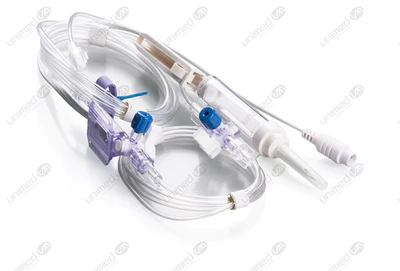Manufacturers of medical equipment are working on a more practical and affordable cable solutions.
Good design can differ from good quality when creating a cable for medical equipment. This article introduces the Philips IBP cable from Unimed Medical as a creative way to make cables reasonably priced with excellent efficiency and efficacy.
What is the operation of the Philips IBP cable?
A growing number of medical facilities are using Philips IBP cables because of their effectiveness and affordability.
IBP cables are perfect for use in medical settings where dependability is crucial since they make it simple to transfer data between devices. They can be used with many devices, including scanners and monitors, and are frequently chosen for standard cables because of their lightweight and simple design.
Using IBP cables has the following advantages:

- Data transfer times are cut in half thanks to eliminating several connections made possible by IBP cables.
- Enhanced dependability: IBP cables are perfect for use in delicate medical contexts since they resist interference. Furthermore, because of their little weight, they are less prone to put stress on machinery or equipment.
- Lower costs: IBP cables are less expensive than conventional cable options and tend to survive longer because of their sturdy design, which can ultimately save healthcare providers money.
What benefits does the new Philips IBP cable offer?
Certain benefits exist when comparing the Philips IBP cable to other medical cable options. First, it is a preferred option for manufacturers of medical devices because it is effective and economical.
The copper and aluminum used to create the Philips IBP cable make it strong and flexible, enabling it to be easily handled and securely tucked into small areas. The IBP cable also has a high data transfer rate, which makes it the perfect option for medical devices needing quick data transmission.
Additionally, the Philips IBP cable features a low resistance for signal transmission with less interference. Therefore, the IBP cable is a great option for devices that are sensitive to noise and interference because of this.
Conclusion
Cable systems, which offer safe connections between different medical equipment and a central place for monitoring, can be useful and economical. Additionally, cable systems can aid in preventing accidental gadget activation, which could have detrimental effects. Contact our team at Unimed Medical if you're interested in creating a cable solution for your company right away!

























